Life
-
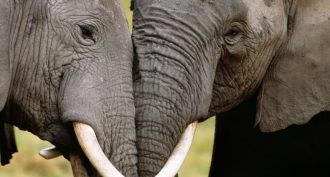 Genetics
GeneticsDNA in ivory pinpoints elephant poaching hot spots
Thousands of elephants have been killed for their ivory tusks. A new study used DNA in ivory to trace where most of the killings happen.
By Meghan Rosen -
 Health & Medicine
Health & MedicineNew ways to fight the flu
Influenza sickens millions each year. A worldwide epidemic could kill many of them. Fortunately, new ways to fight the flu offer hope — before it’s too late.
-
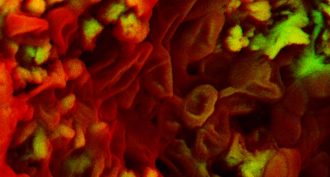 Animals
AnimalsMore dinosaur bones yield traces of blood, soft tissue
More dinosaur bones are found to contain residues of blood and soft tissue. The discovery could help point to when dinosaurs turned into warm-blooded creatures.
-
 Animals
AnimalsA whale of a journey
The 5,200-kilometer (3,200 mile) journey of Isabela provides a window into the migration patterns of blue whales.
-
 Fossils
FossilsThe real sea monsters
No known dinosaurs lived in the oceans. But there were lots of big aquatic reptiles that were every bit as ferocious and awesome.
By Sid Perkins -
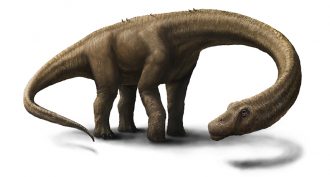 Fossils
FossilsNew analysis halves massive dino’s weight
No question about it, Dreadnoughtus schrani was enormous. But a new estimate concludes this dino weighed just half as much as first thought.
By Meghan Rosen -
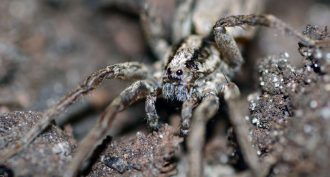 Animals
AnimalsThese spiders can purr
This wolf spider can purr like no other. It makes vibrations and sounds to tell a female he’s interested in her.
By Karl Gruber -
 Animals
AnimalsThis endangered species gives new meaning to ‘single mom’
Scientists have found DNA evidence that in the wild, sawfish have produced offspring without mating. That’s a first for an animal with a backbone.
-
 Fossils
FossilsThat’s no dino!
Not all ancient reptiles were dinosaurs. Some soared, many swam the seas and still others looked like dinos—but actually weren’t.
By Sid Perkins -
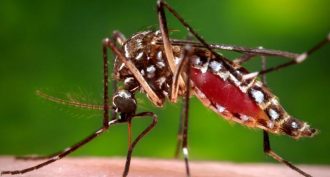 Health & Medicine
Health & MedicineA germ stopper for blood products
A new system can disable almost all viruses or bacteria that are lurking in donated blood platelets and plasma.
By Tara Haelle -
 Health & Medicine
Health & MedicineMERS virus hits South Korea hard
MERS — a killer viral disease — emerged for the first time only three years ago. That was in the Middle East. Now it has spread to Asia.
-
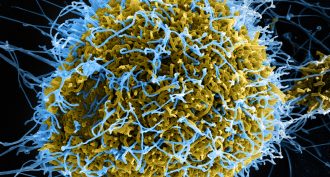 Life
LifeExplainer: What is a virus?
Viruses cause many of the world’s common diseases. These germs reproduce by hijacking the cells of their host.